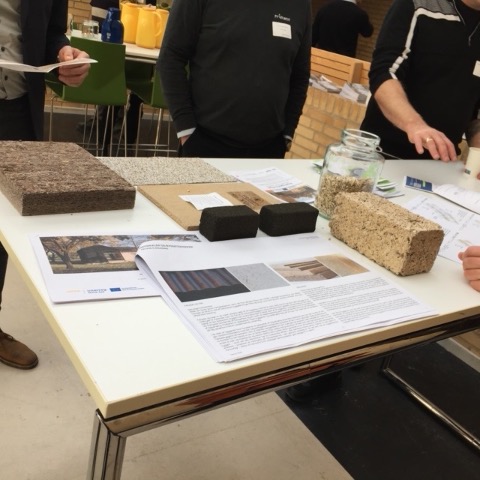In the heart of Denmark, a transformative project is taking shape, promising to revolutionize sustainable building practices and foster a robust circular bioeconomy. The Building Based on Biobased (BBoBB) initiative is spearheaded by a coalition of dedicated organizations, each bringing unique expertise and motivation to the table. Here's an inside look at how Agrovi, Guldborgsund Municipality, CELF, and Business Lolland Falster (BLF) are leading the charge.
Agrovi Agrovi is an agricultural advisory service that plays a critical role in the BBoBB project by focusing on the agrological aspects of hemp cultivation in Denmark. Their efforts include:
- Gathering and sharing practical knowledge on hemp growing.
- Assessing economic viability, soil health, carbon balance, GHG emissions, and biodiversity impacts.
Motivation: Agrovi aims to provide farmers with valuable insights and guidance on hemp cultivation, fostering new business opportunities and supporting the green transition of farming in Denmark.
Guldborgsund Municipality The municipality is a dual force in the BBoBB project, acting as both the builder and the building permit authority. They are responsible for the practical realization of "Hampens Hus," Denmark's pioneering hemp house. Their tasks include:
- Documenting challenges and solutions in constructing with biobased materials.
- Developing a comprehensive legislative framework for bio-based building permits.
Motivation: Guldborgsund Municipality seeks to establish a hemp value chain, create local jobs, and promote sustainable building materials that sequester carbon. They aim to lead by example, integrating biobased materials into future public building projects.
CELF (Center for Education and Learning) CELF is instrumental in integrating biobased solutions into local educational programs. Their contributions to the BBoBB project involve:
- Developing a training module for bio-based value chains.
- Hosting the hemp house and facilitating communication and dissemination of knowledge.
Motivation: CELF is committed to preparing students for a biobased future and the green transition, showcasing the potential of sustainable building materials to inspire the next generation.
Business Lolland Falster (BLF) BLF focuses on business model development within the BBoBB project, concentrating on involving and identifying customers. Their activities include:
- Gathering and disseminating knowledge on technical and agricultural challenges.
- Guiding SMEs and startups towards commercial sustainability in the bioeconomy.
Motivation: BLF aims to enhance their expertise in agribusiness, green transition, and sustainable building methods, supporting local businesses in navigating the new hemp value chain.

Regional Activities and Pilot Project
The cornerstone of the Danish BBoBB initiative is the construction of "Hampens Hus," a hemp demo house showcasing various hemp materials in floors, walls, and roofs. This house serves as a physical pivot point to generate knowledge and interest in building a local hemp value chain from field to end products. Key activities include:
- Engaging stakeholders and the younger generation in experiencing hemp from field to building.
- Documenting the construction process, including monitoring by the Danish Technical University.
- Sharing experiences, both positive and negative, along with inspirational tenders and partnering contracts.
The Importance of Scaling Up Biobased Value Chains
Scaling up biobased value chains is crucial for Denmark's rural areas to lead the green transition. Success in this endeavor will demonstrate that rural businesses can drive transformative change, resulting in a richer, prouder rural region with more diverse and interesting job opportunities.
Vision for the Future of Circular Bioeconomy
The future of the circular bioeconomy in Denmark hinges on the sustainable use of agricultural and marine resources to replace fossil-based materials. By focusing on reuse, recycling, and reducing material consumption per person, Denmark aims to create a sustainable raw material source that never runs out, all while preserving biodiversity and maintaining healthy, fertile soils.
Through the collaborative efforts of Agrovi, Guldborgsund Municipality, CELF, and Business Lolland Falster, the BBoBB project is poised to lead Denmark towards a more sustainable and innovative future in the circular bioeconomy.
